“Hamilton” on Disney+ Doesn’t Throw Away its Shot
Released on Disney+ during the pandemic, this musical tells the story of founding father Alexander Hamilton and depicts the formation of the United States with a diverse cast.
Incluvie Foundation Gala - Learn More
I have two children via vaginal births. Both pregnancies were a “surprise”. Don’t get me wrong, my kids are great; but being pregnant sucked. Trying to work full-time while pregnant is a real bummer, and with a complicated pregnancy, it is impossible. I didn’t love Expecting Amy, the mini-series following Amy Schumer’s pregnancy, but it brought up a lot of great unspoken side-effects of working and growing a human in America. This three-part documentary is a perfect film for Amy Schumer’s son, Gene, to watch when he is older. For the rest of us, it is a great complication of this family navigating a rough pregnancy and (spoiler) the birth of the beloved baby.
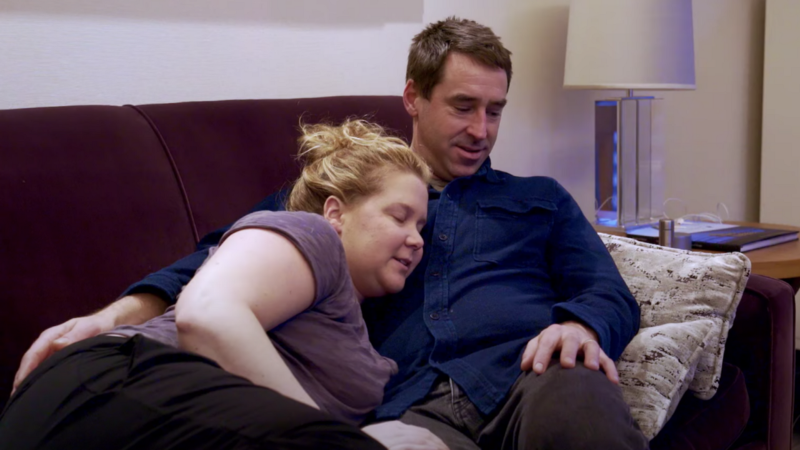
Schumer’s husband, Chris Fischer, is a great partner. He is completely supportive of Amy, and she expresses her gratitude for him multiple times. They clearly love each other. Some viewers might feel cynical of the beautiful wedding edited throughout, but I found it hilarious. I didn’t have a wedding myself, but weddings are usually a couple at their absolute best — best looking, most optimistic, most fun. Counter that with being weeks deep into pregnancy when suddenly someone is always crying, puking, half-dressed; there are arguments, talking about poop, and not caring what you look like because your body is in so much weird pain. I smirked to myself during the wedding scenes, thinking, “those crazy kids have no idea what is about to happen.”
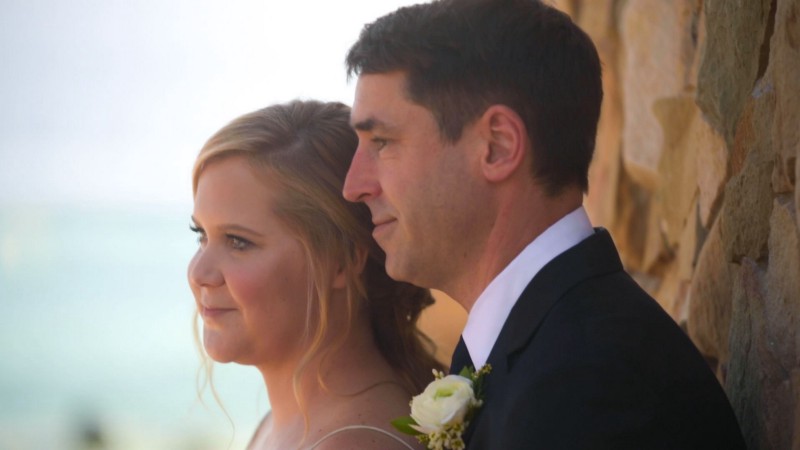
I don’t want to think that this film is a pity-party for a celebrity with access to anything and everything who has a rough pregnancy and birth experience, although I can understand why some might view it as that. It felt more like a response to Amy’s own experience of the lies we are all told and shown. She calls out the frustration that no one told her how gross and difficult all of it is, even for a wealthy, cisgender, White couple.
I don’t want to overlook the struggle that many people go through to have a viable pregnancy, to grow a family, or to have access to the care (including medical, financial and mental health care) necessary for it all. This film isn’t about those stories. This is a film about navigating your self and your family in a realistic way that isn’t seen regularly. Now imagine trying to do this without all the resources that Schumer has. There is a clear disparity between White women and BIPOC, as documented by the CDC: “Black, American Indian, and Alaska Native (AI/AN) women are two to three times more likely to die from pregnancy-related causes than white women — and this disparity increases with age.” Add poverty to the mix, and it is nearly impossible. Even if you are White and wealthy, “having it all” is unattainable for women.
One reviewer of the movie, Verne Gay for Newsday, asks “why is she subjecting herself to this?” WTF! Why is she doing what? Trying to maintain her own passion and identity and have a baby? Gay implies that she could have just cancelled her Netflix commitments. Are women not allowed to pursue both? Should we all have to compromise our career and passions to have a child? It is infuriating. The film shows what many, less privileged (obviously) women have to deal with ALL THE TIME.
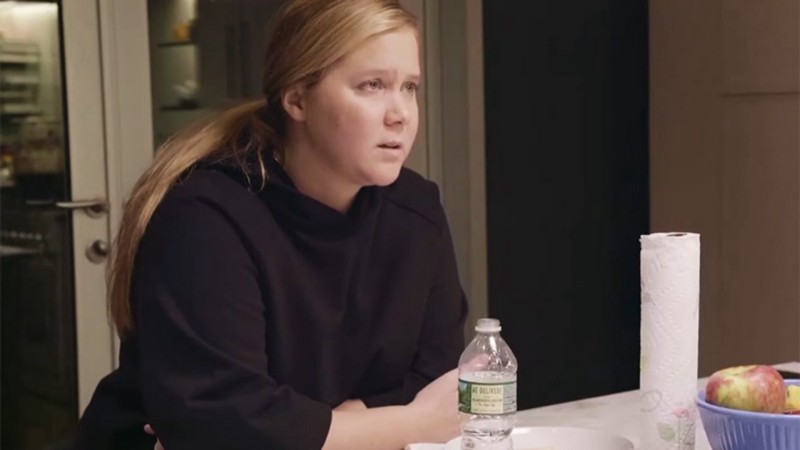
Personal Sidebar:
After I had my first child, I didn’t even attempt to breastfeed. Why? Because I was sick of feeling like a machine. I had given up my body to this child for 10 months (I don’t know why people say 9 months because it is 10) and I wanted myself back. Does that mean I am not a good mom? Absolutely not. That means I am more than just a mom. No one asked my baby’s daddy if he was going to keep pursuing his career when I was pregnant. And spoiler — he stayed home with the kids for years while I worked! When I did go back to work after my second kid was born, a professor I worked for (White, cisgender man) pulled me aside, and gently berated me for leaving my kids — that babies needed their mothers. I explained to him that their father was home with the kids, but he assured me that wasn’t good enough. We were doing it all wrong. I think criticism like Gay’s comes from a similar mindset. Why didn’t Amy just put her career on hold for this pregnancy? Or put the pregnancy on hold for her career? Choose one.
Back to the movie:
Part Two of Expecting Amy takes the audience through the story of Chris’ Autism Spectrum Disorder diagnosis. The diagnosis only leads the couple to learn to communicate better. He is not pitied or vilified, and she is not credited for “putting up with it”; the diagnosis comes as a relief to both Chris and Amy, and they work with it. It isn’t a hurdle for the couple to jump over, but simply an understanding of one-half of the couple’s mental process.
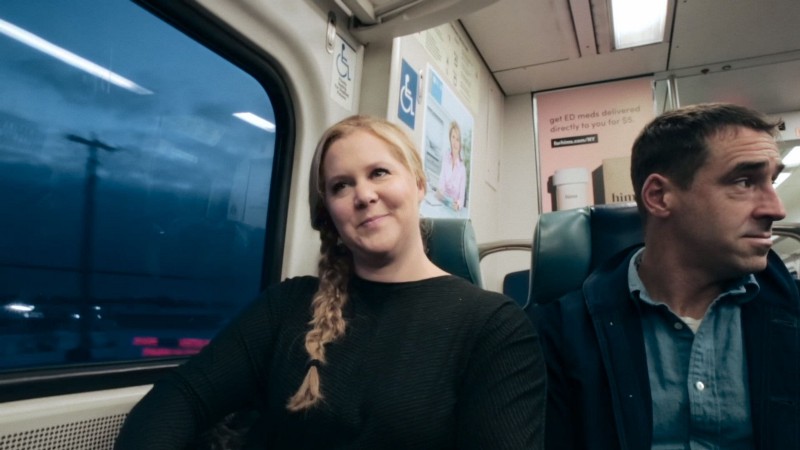
Part Three takes us to the birth of Gene, which is not without it’s set of new struggles. I appreciated seeing the unease of first time parents and the unknown. Big decisions to be made and the shame that comes with those decisions — like c-section versus vaginal birth, and to breastfeed or not to breastfeed. More pressure on the parents, but usually directed at the mom. Schumer allows the viewer to see it all, literally, and I understand why. It’s not that women don’t show their bodies in movies, but women’s bodies are supposed to be shown in a very specific, sexualized way; and this is not that kind of movie.
If you don’t like Amy Schumer’s comedy, you are less likely to enjoy the film. But I think it is worth watching, if nothing else, to understand how truly complicated pregnancy can be, pukes and all….not to mention post-pregnancy, when things get really gross and the real work begins.
After watching this movie, if you are asking “why is she subjecting herself to this?”, remember that many policy-makers are taking away any choice to prevent it. SCOTUS upheld an employer’s ability to refuse to cover birth control, so women can be forced to experience this “magical” time for themselves. In other words, please vote.
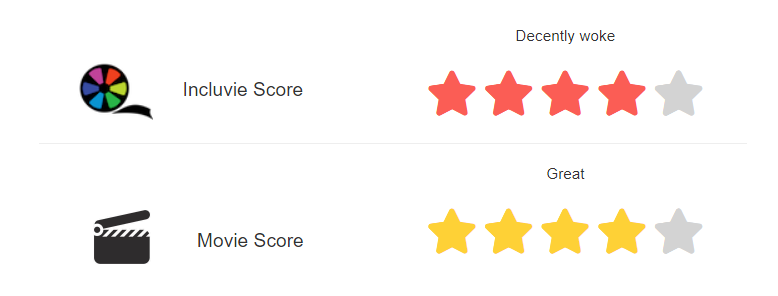
Written by Sarah Erskine
Related lists created by the same author
Released on Disney+ during the pandemic, this musical tells the story of founding father Alexander Hamilton and depicts the formation of the United States with a diverse cast.
Related diversity category
A throwback to the last months of the 20th century in this comedy film.